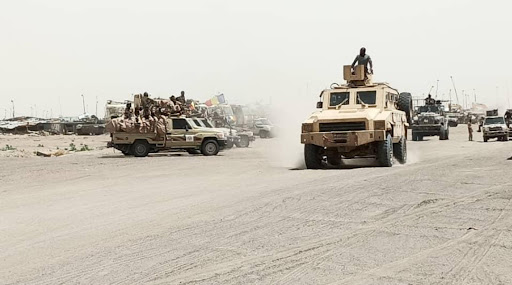Despite Security Risks, Nigerian Authorities Plan To Resettle IDPs To Mallam Fatori
Nigerian authorities plan on resuming a resettlement programme for displaced people in Malam Fatori, a remote community near the border with Niger that has been overrun by the Islamic State, despite humanitarian and security concerns.

The Borno state government in Northeast Nigeria wants to press ahead with the return of refugees to the remote town of Malam Fatori in May, the governor announced during a visit to the area.
The town has been the target of repeated attacks from the Islamic State in West Africa Province (ISWAP). The last time the town was overrun and all the few returning residents chased away was in Nov. 2022, when the town was simultaneously inundated with flood waters and attacked by terrorists.
Most of the people fled across the border to the Niger Republic. No one outside the military has tried to return since.
“My main objective here is to see for myself the clearance exercise and discuss how we can return people,” Governor Babagana Zulum said on March 4.
He told officials, “The town was displaced due to flood last year. We want the people to return next month for normal activities to return to this part of the state.”
The town, the headquarters of Abadam Local Government Area, is protected by the Army’s 68th battalion, often supported by Nigerien forces. During his visit, he announced the allocation of additional security equipment, including armoured vehicles, to reinforce the units based there.
HumAngle had previously reported on the construction of makeshift shelters to house thousands of returnees. An estimated 4,000 people were said to have been returned from Niger to Mallam Fatori in March and April 2022.
‘Overrun’
Past resettlement efforts were beset by security threats.
According to an International Crisis Group report published in January, “authorities confined residents to a camp surrounded by a trench some distance from the old town, and co-located a garrison of soldiers and local men belonging to the Civilian Joint Task Force (CJTF)”.
In November last year, the temporary camp for returnees was flooded and then the flooded camp was attacked by ISWAP. Several people were killed.
For much of the past few years, the town has been the site of a military camp. Crisis group counted the number of attacks on the village. Quoting a security source, it said it had been attacked 24 times in 2020, 34 times in 2021, and there were 44 attacks between January and Nov. 2022.
“The count stopped in November, when flooding disrupted the town’s defences, allowing ISWAP to overrun the settlement and force its residents to scatter,” the Crisis Group report said.
The humanitarian and security conditions in Mallam Fatori remain volatile. It’s unclear if authorities will be able to sufficiently address these vulnerabilities before resuming the resettlement program.
Support Our Journalism
There are millions of ordinary people affected by conflict in Africa whose stories are missing in the mainstream media. HumAngle is determined to tell those challenging and under-reported stories, hoping that the people impacted by these conflicts will find the safety and security they deserve.
To ensure that we continue to provide public service coverage, we have a small favour to ask you. We want you to be part of our journalistic endeavour by contributing a token to us.
Your donation will further promote a robust, free, and independent media.
Donate HereStay Closer To The Stories That Matter




